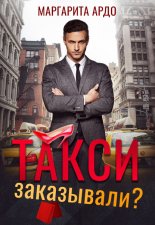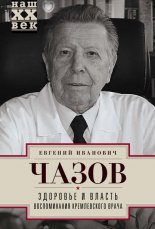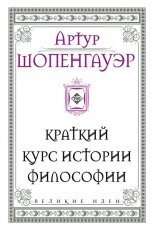×åëîâåê-íåâèäèìêà / The Invisible Man + àóäèîïðèëîæåíèå Óýëëñ Ãåðáåðò

About four o’clock a stranger entered the village. He was a short, stout person in an extraordinarily shabby top hat. He moved with a sort of reluctant alacrity. He turned the corner of the church, and directed his way to the “Coach and Horses.”
This stranger was talking to himself. He stopped at the foot of the “Coach and Horses” steps, and entered the house. Finally he marched up the steps, and by Mr. Huxter saw that he turned to the left and opened the door of the parlour. Mr. Huxter heard voices from within the room.
“That room’s private!” said Hall, and the stranger shut the door clumsily and went into the bar.
In a few minutes he reappeared, wiping his lips with the back of his hand with an air of quiet satisfaction. He stood looking about him for some moments, and then Mr. Huxter saw him walk towards the gates of the yard, upon which the parlour window opened. The stranger, after some hesitation, leant against the gates, produced a short clay pipe, and prepared to fill it. His fingers trembled while doing so. Strange behaviour of the man’s prompted Mr. Huxter to maintain his observation.
Suddenly the stranger stood up abruptly and put his pipe in his pocket. Then he vanished into the yard. Mr. Huxter leapt round the counter and ran out into the road to intercept the thief. As he did so, Mr. Marvel reappeared. He had a big bundle in a blue table-cloth in one hand, and three books tied together in the other. He saw Huxter, and turned sharply to the left, and began to run.
“Stop, thief!” cried Huxter, and set off after him.
Mr. Huxter’s sensations were vivid but brief. He saw the man just before him. He saw the village flags, and some people. He bawled, “Stop!” again. Suddenly his shin was caught in some mysterious fashion, and he was no longer running, but flying through the air. He saw the ground suddenly close to his face. And subsequent proceedings interested him no more.
Chapter XI
In the “Coach and Horses”
In order to understand what had happened in the inn, it is necessary to go back to the moment when Mr. Marvel first came into view. At that moment Mr. Cuss and Mr. Bunting were in the parlour. They were seriously talking about the strange occurrences of the morning, and were, with Mr. Hall’s permission, making a thorough examination of the Invisible Man’s belongings. The stranger’s scattered garments had been removed by Mrs. Hall and the room tidied up. And on the table under the window Cuss had noticed three big books in manuscript labelled “Diary.”
“Diary!” said Cuss, putting the three books on the table. “Now, at any rate, we will learn something.”
The Vicar stood with his hands on the table.
“Diary,” repeated Cuss, sitting down, putting two volumes to support the third, and opening it. “Hm-no name. Lord! Only figures.”
The vicar came round to look over his shoulder.
Cuss turned the pages over with a face suddenly disappointed.
“Dear me! Only figures, Bunting.”
“There are no diagrams?” asked Mr. Bunting. “No illustrations throwing light-”
“See for yourself,” said Mr. Cuss. “Some of it’s mathematical and some of it’s Russian or some such language (to judge by the letters), and some of it’s Greek. You can understand Greek I suppose.”
“Of course,” said Mr. Bunting, wiping his spectacles and feeling suddenly very uncomfortable-for he had no Greek left in his mind worth talking about; “yes-the Greek, of course, may give us a clue.”
“I’ll find you a place.”
“I’d rather glance through the volumes first,” said Mr. Bunting, still wiping his glasses. “A general impression first, Cuss, and then, you know, we can try to find the clue.”
He coughed, put on his glasses, coughed again. Then he took the volume Cuss handed him. And then something happened.
The door opened suddenly.
Both gentlemen started violently, looked round, and were relieved to see a rosy face beneath a furry silk hat.
“Whisky?” asked the face.
“No,” said both gentlemen at once.
“Over the other side, my man,” said Mr. Bunting. “And please shut that door,” said Mr. Cuss, irritably.
“All right,” said the intruder and he vanished and closed the door.
“A sailor, I think,” said Mr. Bunting. “Amusing fellows, they are.”
“It quite made me jump,” said Cuss. “The door was opening like that.”
Mr. Bunting smiled as if he had not jumped.
“And now,” he said with a sigh, “these books.”
Someone sniffed as he did so.
“One thing is indisputable,” said Bunting, drawing up a chair next to that of Cuss. “Very strange things happened in Iping during the last few days-very strange. I cannot of course believe in this absurd invisibility story-”
“It’s incredible,” said Cuss, “incredible. But the fact remains that I saw-I certainly saw right down his sleeve.”
“But did you-are you sure? Hallucinations are so easily produced. I don’t know if you have ever seen a really good conjuror.”
“I won’t argue again,” said Cuss. “We’ve discussed all that already, Bunting. And now there are these books. Ah! Greek letters certainly.”
He pointed to the middle of the page. Mr. Bunting flushed slightly and brought his face nearer, apparently finding some difficulty with his glasses. Suddenly he felt a strange feeling at the nape of his neck. He tried to raise his head, and encountered an immovable resistance. The feeling was a curious pressure: a heavy, firm hand bore his chin to the table.
“Don’t move, gentlemen” whispered a voice.
Mr. Bunting looked into the face of Cuss, and saw a reflection of his own astonishment.
“I’m sorry to treat you like this,” said the Voice, “but it’s unavoidable. Since when did you learn to pry into an investigator’s private memoranda?”
Two chins struck the table simultaneously, and two sets of teeth rattled.
“Where have they put my clothes? Listen,” said the Voice. “The windows are fastened and I’ve taken the key out of the door. I am a strong man, and I have the poker-besides being invisible. There’s not the slightest doubt that I could kill you both and get away quite easily if I wanted to-do you understand? Very well. If I let you go, will you promise not to try any nonsense and do what I tell you?”
The vicar and the doctor looked at one another.
“Yes,” said Mr. Bunting, and the doctor repeated it.
Then the pressure on the necks relaxed, and the doctor and the vicar sat up, both very red in the face and wriggling their heads.
“Please keep sitting where you are,” said the Invisible Man. “Here’s the poker, you see.”
“When I came into this room,” continued the Invisible Man, after presenting the poker to the tip of the nose of each of his visitors, “I did not expect to find it occupied, and I expected to find, in addition to my books of memoranda, my clothing. Where is it? No-don’t rise. I can see it’s gone. Though the days are warm enough for an invisible man, the evenings are quite chilly. I want clothing-and I must also have those three books.”
Chapter XII
The Invisible Man Loses His Temper
At this point the narrative should break off again. While these things were going on in the parlour, and while Mr. Huxter was watching Mr. Marvel smoking his pipe against the gate, not a dozen yards away were Mr. Hall and Teddy Henfrey discussing the event in Iping.
Suddenly there came a violent thud against the door of the parlour, a sharp cry, and then-silence.
“Hallo!” said Teddy Henfrey.
Mr. Hall understood things slowly but surely.
“That isn’t right,” he said, and came round from behind the bar towards the parlour door.
He and Teddy approached the door together, with intent faces.
“Something wrong,” said Hall, and Henfrey nodded.
Whiffs of an unpleasant chemical odour met them, and there was a muffled sound of conversation, very rapid and subdued.
“Are you all right there?” asked Hall, rapping.
The muttered conversation ceased abruptly, for a moment silence, then the conversation was resumed, in hissing whispers, then a sharp cry of “No! no, you don’t!” There came a sudden motion and a brief struggle. Silence again.
“What the devil?” exclaimed Henfrey.
“Are you all right there?” asked Mr. Hall, sharply, again.
The Vicar’s voice answered with a curious jerking intonation:
“Quite right. Please don’t interrupt.”
“Odd!” said Mr. Henfrey.
“Odd!” said Mr. Hall.
“They say, ‘Don’t interrupt,’” said Henfrey.
“I heard this,” said Hall.
“And a sniff,” said Henfrey.
They remained listening. The conversation was rapid and subdued.
“I can’t,” said Mr. Bunting, his voice rising; “I tell you, sir, I will not.”
“What was that?” asked Henfrey.
“He says he will not,” said Hall. “Was he speaking to us?”
“Disgraceful!” said Mr. Bunting, within.
“‘Disgraceful,’” said Mr. Henfrey. “I heard it. Who’s that speaking now?” asked Henfrey.
“Mr. Cuss, I suppose,” said Hall. “Can you hear anything?”
Silence.
“Sounds like throwing the table-cloth about,” said Hall.
Mrs. Hall appeared behind the bar. Hall made gestures of silence. This aroused Mrs. Hall’s opposition.
“What are you listening there for, Hall?” she asked. “Do you have nothing better to do?”
Hall and Henfrey, rather crestfallen, tiptoed back to the bar, gesticulating to explain to her.
At first she refused to understand. Then she insisted on Hall keeping silence, while Henfrey told her his story.
“I heard him say ‘disgraceful’; that I did,” said Hall.
“I heard that, too, Mrs. Hall,” said Henfrey.
“So-” began Mrs. Hall.
“Hsh!” said Mr. Teddy Henfrey. “Do you hear the window?”
“What window?” asked Mrs. Hall.
“Parlour window,” said Henfrey.
Everyone stood listening intently. Abruptly Huxter’s door opened and Huxter appeared, eyes staring with excitement, arms gesticulating.
“Stop thief!” cried Huxter and ran across the oblong towards the yard gates, and vanished.
Simultaneously came a tumult from the parlour, and a sound of windows being closed.
Hall, Henfrey, and the rest rushed out at once into the street. They saw someone whisk round the corner towards the road, and Mr. Huxter executing a complicated leap in the air that ended on his face. The people in the street were standing astonished or running towards them.
Mr. Huxter was stunned. Hall and the two labourers from the Tap rushed at once to the corner, and saw Mr. Marvel vanishing by the corner of the church wall. They have made the impossible conclusion that this was the Invisible Man suddenly become visible. But Hall had hardly run a dozen yards before he gave a loud shout of astonishment and went flying sideways, clutching one of the labourers and bringing him to the ground. The second labourer resumed the pursuit, but fell down. Then, as the first labourer stood up, he was kicked sideways by a blow that might have felled an ox.
When Hall and Henfrey and the labourers ran out of the house, Mrs. Hall remained in the bar. And suddenly the parlour door was opened, and Mr. Cuss appeared, and without glancing at her rushed at once down the steps toward the corner.
“Hold him!” he cried. “Don’t let him drop that parcel.”
He knew nothing of the existence of Marvel. The face of Mr. Cuss was angry and resolute.
“Hold him!” he bawled. “He’s got my trousers! And all the Vicar’s clothes! I’ll get him in a minute!” he cried to Henfrey as he passed the Huxter, and, coming round the corner to join the tumult, was promptly knocked off his feet. Somebody in full flight trod heavily on his finger. He yelled, struggled to regain his feet, was knocked against and thrown down again, and became aware that he was involved not in a capture, but a rout. Everyone was running back to the village. He rose again and was hit severely behind the ear. He ran back to the “Coach and Horses”, leaping over the deserted Huxter, who was now sitting up, on his way.
Behind him he heard a sudden yell of rage. He recognised the voice as that of the Invisible Man.
In another moment Mr. Cuss was back in the parlour.
“He’s coming back, Bunting!” he said, rushing in. “Save yourself!”
Mr. Bunting was standing in the window and clothing himself in the paper.
“Who’s coming?” he said.
“Invisible Man,” said Cuss, and rushed on to the window. “He’s mad! Mad!”
In another moment he was out in the yard.
“Good heavens!” said Mr. Bunting. He clambered out of the window, adjusted his costume hastily, and fled up the village as fast as his fat little legs would carry him.
From the moment when the Invisible Man screamed with rage, it became impossible to give a consecutive account of affairs in Iping. Possibly the Invisible Man’s original intention was simply to take the clothes and books. But then he began to fight.
After that the Invisible Man amused himself for a little while by breaking all the windows in the “Coach and Horses,” and then he thrust a street lamp through the parlour window of Mrs. Gribble. And after that he left, and he was neither heard, seen, nor felt in Iping any more. He vanished absolutely.
Chapter XIII
Mr. Marvel Discusses His Resignation
When the dusk was gathering, a short man in a shabby silk hat was marching through the twilight on the road to Bramblehurst. He carried three books bound together, and a bundle wrapped in a blue table-cloth. His rubicund face expressed consternation and fatigue. He was accompanied by a voice, and ever and again he winced under the touch of unseen hands.
“If you run away again,” said the Voice, “if you attempt to run away again-”
“Lord!” said Mr. Marvel. “Oh, that hurts!”
“On my honour,” said the Voice, “I will kill you.”
“I didn’t try to run away,” said Marvel. “I swear I didn’t. I didn’t know where to turn! How the devil could I know that?”
Mr. Marvel became silent. He blew out his cheeks, and his eyes were eloquent of despair.
“It’s bad enough to let these yokels explode my little secret, without your trying to go away with my books. No one knew I was invisible! And now what am I to do?”
“What am I to do?” asked Marvel.
“Everybody knows that now. It will be in the papers! Everybody will be looking for me!”
Mr. Marvel’s pace slackened.
“Go on!” said the Voice sharply. “Don’t drop those books, stupid. The fact is, I shall have to make use of you… You’re a poor tool, but I must.”
“I’m a miserable tool,” said Marvel.
“You are,” said the Voice.
“I’m the worst possible tool you could have,” said Marvel. “And I’m not strong at all.”
“No?”
“And my heart is weak.”
“Well?”
“I haven’t the nerve and strength for the sort of thing you want.”
“I’ll stimulate you.”
“I wish you wouldn’t. But I can mess up your plans, you know. I am cowardly and miserable.”
“You’d better not,” said the Voice.
“It’s better to die,” said Marvel. “It’s not fair. You must admit… It seems to me I have the right-”
“Go on!” said the Voice.
Mr. Marvel mended his pace, and for a time they went in silence again.
“It’s devilish hard,” said Mr. Marvel.
This was quite ineffectual. He tried again.
“What will I get for that?” he began.
“Oh! Shut up!” said the Voice. “Just do what you’re told. You’re a fool, but you’ll do it.”
“I tell you, sir, I’m not the man for it.”
“If you don’t shut up I shall twist your wrist again,” said the Invisible Man. “I want to think.”
Presently two oblongs of yellow light appeared through the trees, and the square tower of a church loomed through the gloaming.
“I shall keep my hand on your shoulder,” said the Voice, “all through the village. Go straight through and try no foolery.”
“I know that,” sighed Mr. Marvel, “I know all that.”
The unhappy-looking figure in the obsolete silk hat passed up the street of the little village with his burdens, and vanished into the gathering darkness.
Chapter XIV
At Port Stowe
Ten o’clock the next morning found Mr. Marvel, unshaven, and dirty sitting with the books beside him and his hands deep in his pockets, looking very weary, nervous, and uncomfortable, and inflating his cheeks at infrequent intervals, on the bench outside a little inn on the outskirts of Port Stowe. Beside him were the books, tied with string. The bundle had been abandoned in the woods beyond Bramblehurst, in accordance with a change in the plans of the Invisible Man. Mr. Marvel’s hands would go ever and again to his various pockets with a curious nervous fumbling.
When he had been sitting for an hour, an elderly mariner, carrying a newspaper, came out of the inn and sat down beside him.
“Pleasant day,” said the mariner.
“Very,” said Mr. Marvel.
“Just seasonable weather for the time of year,” said the mariner.
“Quite,” said Mr. Marvel.
The mariner’s eyes examined Mr. Marvel’s dusty figure, and the books beside him. As he had approached Mr. Marvel he had heard a sound like the dropping of coins into a pocket.
“Books?” the mariner said suddenly.
Mr. Marvel looked at them.
“Oh, yes,” he said. “Yes, they’re books.”
“There are some extraordinary things in books,” said the mariner.
“I believe you,” said Mr. Marvel.
“And some extraordinary things out of them,” said the mariner.
“That’s true,” said Mr. Marvel. He eyed his interlocutor.
“There are some extraordinary things in newspapers, for example,” said the mariner.
“There are.”
“In this newspaper,” said the mariner.
“Ah!” said Mr. Marvel.
“There’s a story,” said the mariner, fixing Mr. Marvel with an eye that was firm and deliberate; “there’s a story about an Invisible Man, for instance.”
Mr. Marvel scratched his cheek and felt his ears glowing.
“What will they be writing next?” he asked faintly. “Australia or America?”
“Neither,” said the mariner. “Here.”
“Lord!” said Mr. Marvel, starting.
“When I say here,” said the mariner, to Mr. Marvel’s intense relief, “I don’t of course mean here in this place, I mean hereabouts.”
“An Invisible Man!” said Mr. Marvel. “And what does he do?”
“Everything,” said the mariner, controlling Marvel with his eye, and then amplifying, “every-thing.”
“I haven’t seen papers for four days,” said Marvel.
“He was at Iping,” said the mariner.
“Indeed!” said Mr. Marvel.
“He started there. And where he came from, nobody doesn’t seem to know. Here it is: ‘Peculiar Story from Iping.’ And it says in this paper that the evidence is extraordinary strong.”
“Lord!” said Mr. Marvel.
“Yes, it’s an extraordinary story. A clergyman and a doctor saw him, or to be exact, didn’t see him. He was staying, it says, at the ‘Coach and Horses,’ and no one was aware of his misfortune, until his bandages on his head were torn off. It was then observed that his head was invisible. They tried to catch him, but casting off his garments, he succeeded in escaping. And he had seriously wounded our constable, Mr. J. A. Jaffers. What a story, eh?”
“Lord!” said Mr. Marvel, looking nervously about him, trying to count the money in his pockets. “It sounds most astonishing.”
“Indeed! Extraordinary, I call it. I have never heard of Invisible Men before.”
“And that’s all what he did?” asked Marvel.
“It’s enough, isn’t it?” said the mariner.
“Did he go back to Iping?” asked Marvel. “Just escaped and that’s all, eh?”
“All!” said the mariner. “Why! Isn’t it enough?”
“Quite enough,” said Marvel.
“I should think it was enough,” said the mariner. “I should think so.”
“He didn’t have any pals-it doesn’t say he had any pals, does it?” asked Mr. Marvel, anxious.
“You want more of them?” asked the mariner. “No, thank Heaven, he didn’t.”
He nodded his head slowly.
“It makes me uncomfortable, the thought of that chap running about the country! He is free. And they say he may go to Port Stowe. Just think of the things he might do! Let’s suppose he wants to rob-who can prevent him? He can trespass, he can burgle, he could walk through a cordon of policemen! And wherever there was wine he liked-”
“He’s got an advantage, certainly,” said Mr. Marvel.
“You’re right,” said the mariner. “He has.”
Mr. Marvel looked about him, listened, bent towards the mariner, and lowered his voice:
“The fact is-I know something about this Invisible Man. From private sources.”
“Oh!” said the mariner, interested. “You?”
“Yes,” said Mr. Marvel. “Me.”
“Indeed!” said the mariner. “And may I ask-”
“You’ll be astonished,” said Mr. Marvel behind his hand. “It’s tremendous.”
“Indeed!” said the mariner.
“The fact is,” began Mr. Marvel in a confidential tone. Suddenly his expression changed marvellously. “Oh!” he said. His face was eloquent of physical suffering.
“Wow!” he said.





